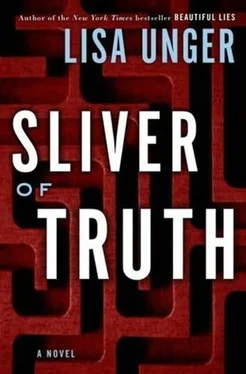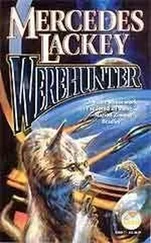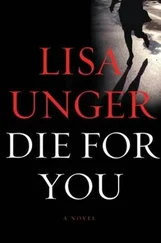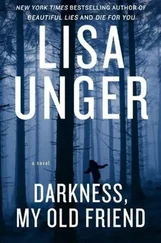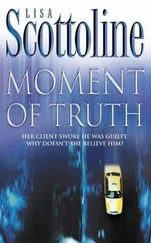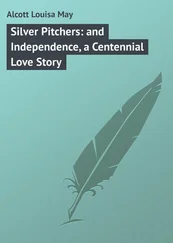I COULD TELL you that it was cool, that the sky was a flat, dead concrete gray, and that the sun was trapped hopelessly behind thick cloud cover. But it was England and late autumn, so yeah. We drove in silence toward the city. I kept my eyes closed or turned out the window, so as not to invite any conversation from Dylan. I had a million questions but I wished I could get my answers from somewhere else.
For a while, I tried to retrieve some of the missing fragments of my memory: how I’d gotten to England, what had happened to me, how I’d come to check myself in to the Covent Garden Hotel, whose voice I heard in my head, asking the same question over and over. But I was overcome with a terrible foreboding that discouraged me from mentally exploring my recent past. Maybe some things were better off forgotten.
Eventually I got bored ignoring Dylan and turned to him.
“I was a shit to kiss you like that,” he said as soon as I did. “You’ve got enough going on. I wasn’t trying to take advantage of you. I just…”
He didn’t finish and the sentence hung between us.
“Will you tell me about your mother?” I asked.
“You don’t want to hear my sad story.”
“I do,” I said. I felt the urge to reach out to him, to touch him where I’d slapped him or to put my hand on his arm. But I didn’t. “I really want to know.”
There’d been crime-scene photographs in the file. Alice Grace was beaten to death and left to die in an alley behind the Hôtel Plaza Athénée in Paris in 1985.
He released a sigh. Then: “I always thought, growing up, that my parents were in the hotel business, that they traveled the world buying struggling hotels and turning them into five-star properties. That had been my mother’s family business and I never questioned it. It wasn’t until long after my mother was killed that I learned the truth. That my parents were both former intelligence officers with British Special Forces and that upon their retirement from military service before I was born, they were recruited by Interpol.”
He watched the road and didn’t even glance at me. I could see that he had a white-knuckled grip on the wheel.
“Interpol’s primary function is intelligence gathering and acting as a global police communication system. Agents are not law enforcement personnel; they have no rights of arrest or of search and seizure. My mother was really an analyst, specializing in the gathering and analyzing of intelligence in the form of clandestine communications and surveillance.”
“Your mom was a spy?” I asked, staring at him. I wondered if he was a bit crazy. I was actually starting to feel a little sorry for him. I knew all about trying to find explanations for your family, trying to understand the things they’d done and coming up with a way to make it okay.
He nodded. “In a sense, I suppose that’s what she was. My father was a surveillance photographer. Some of those older pictures you saw of Smiley, they were mostly taken by my father.”
I waited for him to go on. I watched the trees race past us in a blur of green and black. He was driving fast.
“Most of their activities were classified. But I was able to find out through an old friend of my father’s that they gathered data on Smiley for over seven years.”
“Why? For whom?”
“It had come to the attention of the CIA that Max Smiley had some questionable relationships overseas and they were interested in knowing more about his activities. Interpol agreed to watch him when he was in Europe and Africa. My parents were two of the agents assigned to the task.”
He released a long breath here. I kept my eyes on his profile, watching him as I’d felt him watching me for signs that he might be telling the truth. But what did I know about honesty? I probably wouldn’t have recognized it if it kicked me in the teeth.
“There aren’t many pictures of my mother, you know. I have one from when she was a girl. But mostly she avoided the camera. She couldn’t afford to have her image floating around-it was so important for her to be invisible in her work. But she was stunning-jet-black hair and eyes so dark they were almost purple. Her skin was this nearly translucent white. She used to keep her hair back and wear these thick dark glasses, because when she didn’t, everyone stared at her. My father used to call her the Showstopper. When she walked into a room, everyone turned to look at her, men and women.”
I could see some of this beauty in him. It resided in the gray of his eyes, in the fullness of his lips, in the strength of his jaw, in the blue-black shine to his hair. But there was something to him that kept him from being easy on the eyes, something about his aura maybe, that made me want to turn away.
“She went alone to Paris. My paternal grandmother was ill-near death. My father stayed behind to care for her.
“There should have been no risk to her. The maître d’ was a supposed Interpol ally and had arranged for a microphone to be placed at the table where Smiley would be dining. Nobody knows how she was discovered. She wasn’t a careless person; she was highly trained. Nobody knows how she wound up dying such a horrible death, her body discarded in the alley behind a grand hotel. She suffered, died slowly. We know that much. The maître d’ was killed as well. Interpol suspected that he had betrayed her and then was killed for what he knew.”
I let a moment pass in respect for his mother, for how she died and how much it must have pained him to discuss it. Then: “How do you know Max killed her?”
I saw his grip tighten on the wheel. A small muscle started working in his jaw. “Because beating women to death with his bare hands was Max Smiley’s signature. That’s what he did to get his rocks off, or haven’t you figured that out yet?”
His tone was so sharp and the words so harsh that I physically shifted away from him in my seat.
“Wake up, Ridley. Wake the fuck up. Your father, your beloved Max, hated women. He murdered them. Prostitutes, call girls, escorts, women he picked up in bars. Discarded them in hotel rooms and alleyways, in Dumpsters, in abandoned cars. In addition to Project Rescue and his involvement with the lowest scum on the planet there’s a swath of brutally murdered women in his path. Women who he murdered with his own bare hands.”
He pulled the car over so suddenly that I was jerked about unpleasantly, nearly knocking my head against the side window; my seat belt locked. He turned to me. His face had gone pale with anger. A blue vein throbbed in his temple.
“He liked to feel their bones collapse beneath his fists,” he said, lifting and clenching his own hand. “He liked to hear them scream and then whimper and sob as he choked and beat the life out of them.”
He was yelling now and I found myself covering my face and leaning against the cool glass until he went silent. I listened to him breathing hard, listened to the cars race by us, their wheels whispering on wet concrete, felt the Peugeot shake with the speed of their passing. When I lowered my hands, I could see that his eyes were wet and rimmed red. There was a grim intensity to the way he was watching me. I could already see regret in the line of his mouth. I stared back at him, mesmerized by what I saw. His was the face of the ugly truth; I recognized it in every pore. That’s what had kept me turning away from him. I realized that I’d never seen it before, the face of someone who had no secrets to hide, no more lies to tell. I hated him for it.
I reached into the back of the car and grabbed my bag, flung the door open, got out, and started walking. The cold air, the now-driving rain, felt wonderful. I heard his door slam and the sound of his feet on the concrete.
“Ridley,” he called after me. “Ridley, please.”
Читать дальше
